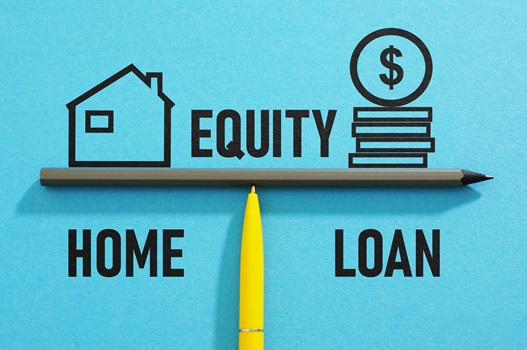
If you’re nearing or already in retirement and wondering how to make your money stretch further without selling your home, a reverse mortgage might be the solution you’re looking for. This loan allows you to access your home equity while continuing to live in the property, giving you more financial breathing room without monthly mortgage payments. With the right guidance and a solid understanding of the process, you can make an informed decision that supports your long-term goals.
Let’s explore how it works, why it might suit your needs, and what to consider before taking the next step.
- How a Reverse Mortgage Works
- Eligibility Requirements For Reverse Mortgage
- Options for Receiving Funds
- Loan Repayment Explained
- Types of Reverse Mortgage to Consider
- Why Homeowners Choose Reverse Mortgage
- Important Considerations Before Applying For A Reverse Mortgage
- Who a Reverse Mortgage Might Be Right For
- Other Financial Options to Explore
How a Reverse Mortgage Works
With a reverse mortgage, the roles are flipped—you receive payments from your lender instead of making them. The funds come from the equity you’ve built in your home over the years. As a result, your loan balance grows, not shrinks, over time. However, you don’t have to repay it monthly. The loan becomes due only when you move out, sell the home, or pass away.
This setup makes it possible to cover ongoing expenses, fund unexpected needs, or simply enjoy retirement with fewer financial worries, all while remaining in the home you love.
Eligibility Requirements For Reverse Mortgage
To qualify, you usually need to be at least 62 years old, although some private lenders accept applicants in Charleston SC as young as 55. Your home must be your primary residence, and you should have at least 50% equity in it. There’s no strict credit score requirement, but you do need to show you can keep up with property taxes, homeowners insurance, and maintenance. Acceptable properties include single-family homes, HUD-approved condos, and certain manufactured homes.
Options for Receiving Funds
One great advantage of a reverse mortgage is flexibility. You can take the money in several ways. Some choose a one-time lump sum to handle big expenses right away. Others prefer monthly payments for predictable income or a line of credit that lets them borrow only what they need. In many cases, combining these methods provides the best balance of stability and access.
That choice depends entirely on your lifestyle and financial needs, and it’s something worth discussing with a qualified advisor like South Carolina Reverse Mortgage Services before moving forward.
Loan Repayment Explained
There are no regular payments to worry about while you live in the home. Instead, the loan is paid back when the house is sold or no longer your primary residence. Often, the property is sold at that point, and the proceeds are used to settle the balance. If your heirs wish to keep the home, they can repay the loan using other funds.
Types of Reverse Mortgage to Consider
Two main types exist: the government-insured Home Equity Conversion Mortgage (HECM) and proprietary reverse mortgages offered by private lenders. HECMs are more common and require counseling from a HUD-approved advisor to ensure you understand the loan. They also have borrowing limits, which change each year.
On the other hand, proprietary reverse mortgages tend to allow larger loan amounts and may be more suitable for high-value properties. Some even extend eligibility to younger borrowers, starting at age 55.
Why Homeowners Choose Reverse Mortgage
 Reverse mortgage in Charleston SC
Reverse mortgage in Charleston SCA reverse mortgage appeals to many retirees because it allows them to stay in their home while gaining access to cash. This can be especially helpful when retirement savings, pensions, or Social Security benefits aren’t quite enough. Since the money you receive isn’t considered taxable income, it won’t increase your tax bill either.
You can use the money however you want—whether it’s for everyday bills, home upgrades, medical expenses, or travel. That freedom is part of what makes this option so attractive.
Important Considerations Before Applying For A Reverse Mortgage
That said, reverse mortgages do come with potential downsides. The upfront costs—such as closing fees, mortgage insurance, and lender charges—can be significant. You’re also responsible for continuing to pay property-related expenses, and failure to do so could put your home at risk.
Another factor to consider is how this loan affects your estate. Since the home may be sold to repay the loan, there may be less value left for your heirs. Additionally, receiving a large amount of money could impact your eligibility for certain need-based programs like Medicaid.
That’s why it’s vital to think through your priorities and talk openly with your family members if you’re considering this option.
Who a Reverse Mortgage Might Be Right For
A reverse mortgage works best for homeowners with plenty of equity who plan to stay in their current home for the foreseeable future. If you’re not concerned about leaving the full property value to heirs—or your family is on board with selling the home later—it may fit your retirement plan perfectly.
It’s especially useful if you want to age in place but need more income to do so comfortably. The loan can help cover maintenance, daily expenses, or adjustments to make the home safer and more accessible as you grow older.
Other Financial Options to Explore
If a reverse mortgage in Charleston SC doesn’t align with your goals, you do have alternatives. Some retirees downsize to a smaller home to reduce living costs. Others explore home equity loans or home equity lines of credit, which let you borrow against your equity but come with required monthly payments.
Refinancing your current mortgage to a lower rate or longer term can also help reduce financial pressure. Each of these options offers different pros and cons, so comparing them with expert help is always a smart move.
A reverse mortgage isn’t for everyone, but it offers a powerful way to turn home equity into cash without leaving your home. For many retirees, it provides the added financial flexibility they need to feel secure and stay independent. While it’s important to consider the costs and long-term impact, the potential benefits make it worth a closer look.
Want to see if a reverse mortgage could work for you? Call South Carolina Reverse Mortgage Services now and explore how your home can support the retirement you deserve.

No comments:
Post a Comment